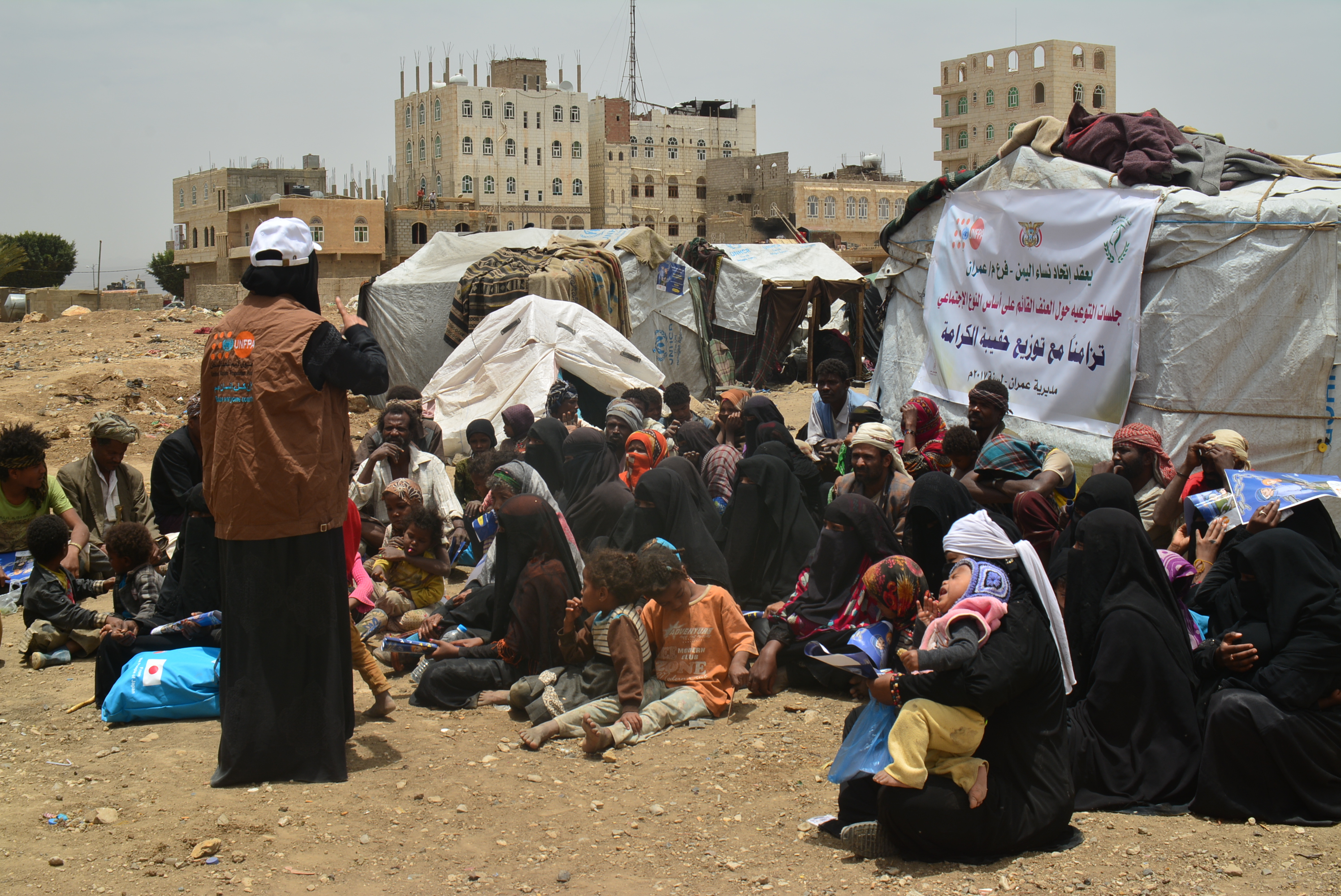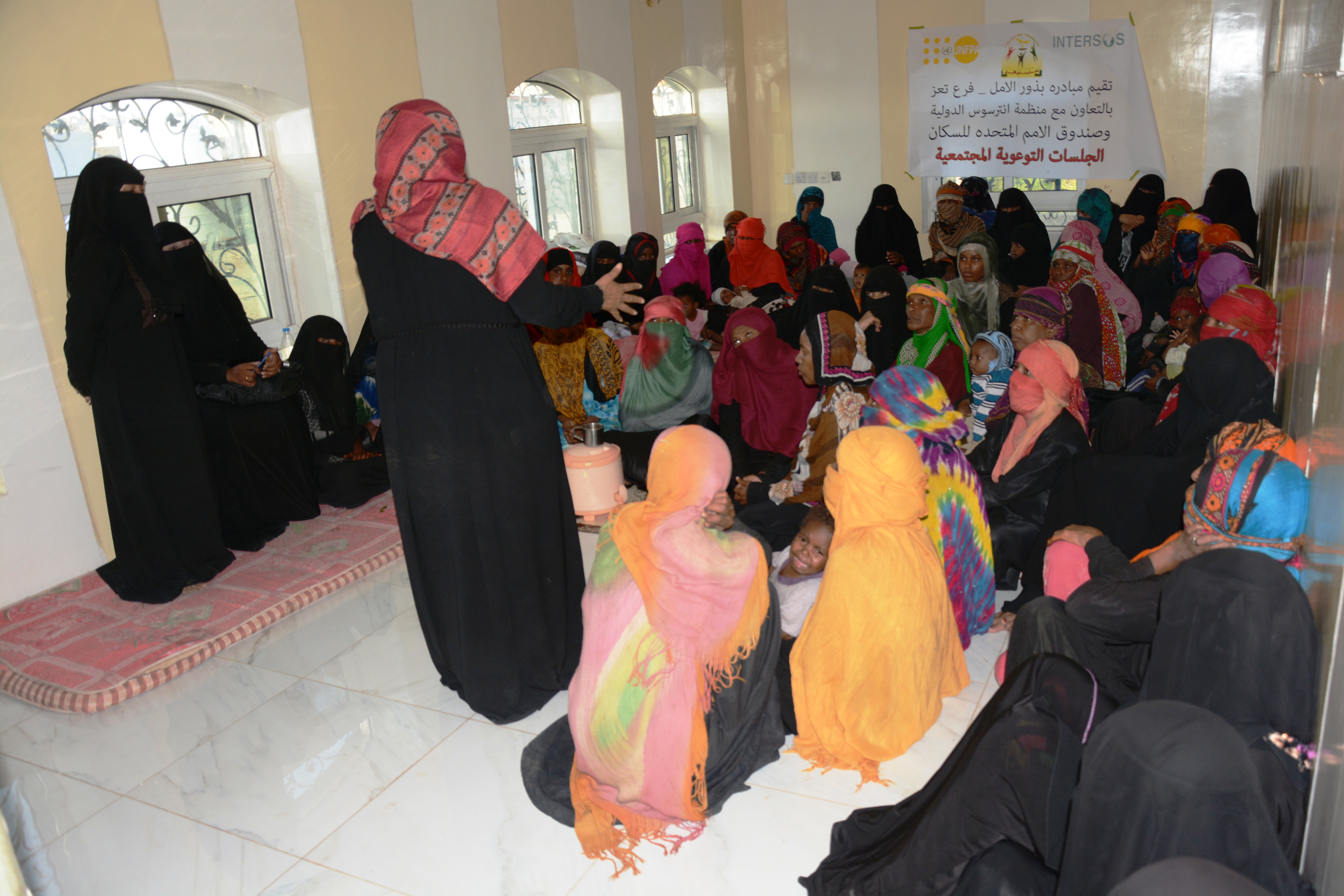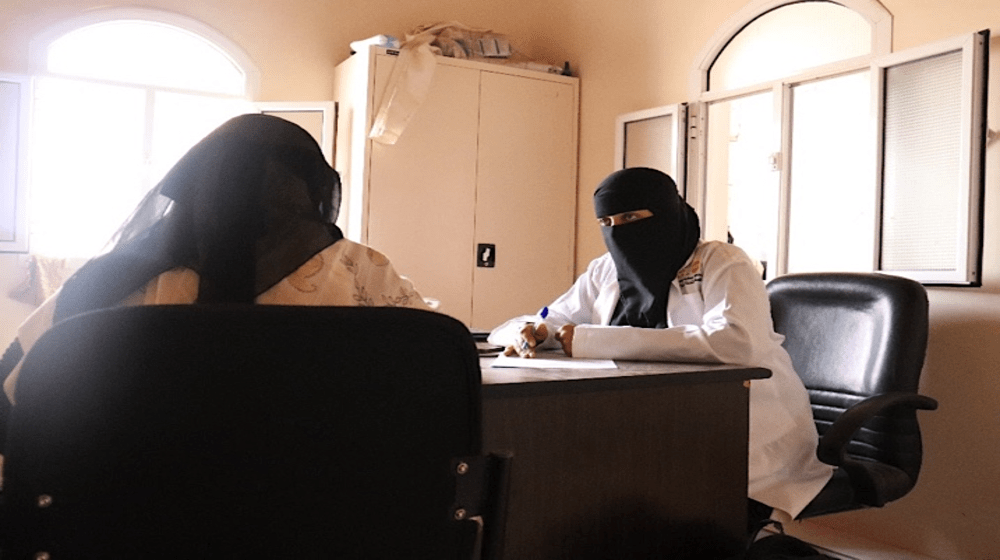Ibb Governorate, Yemen – Kholoud, 28, is no stranger to mental trauma.
As a child, her step mother physically and verbally abused her, while depriving her of food.
Determined to become a midwife, she finished school, but a chance to escape at age 17 proved irresistible, despite the risks.
“I knew nothing about him, but I agreed to marry him just to get out of there,” Kholoud explains.
Yemen’s conflict escalated three years into their marriage, and things took a bleakturn.
The clinic Kholoud worked at was forced to shut down, and her husband lost his job.
“He started to exploit me,” says Kholoud. “First by taking all my money and possessions, and then selling them off to open a clinic for me to work at.”
“Then he started taking all my income and pushing me to work day and night, and leaving the children with me to look after while I worked.”
In desperation, she sought refuge with her father, but fears for the safety of her children forced her back to her husband.
“The exploitation and humiliation broke me, and I ended up worse than ever,” says Kholoud.
Mental health needs soar
Conflict and deprivation have taken a heavy toll on the mental health of Yemenis, especially women and girls. Mental health care remains scarce, and mental illness is highly stigmatized.
Around seven million people require mental health care, but just 120,000 enjoy uninterrupted access to these services. There are only a handful of psychiatrists in Yemen, just one per 700,000 people.
The toll on the mental health of women and girls is even greater as the risk of gender-based violence spikes in times of crisis. An estimated 7.1 million Yemeni women and girls need services to prevent and address gender-based violence , despite a lack of services.

With limited shelter options and a breakdown in protection mechanisms, girls are also increasingly vulnerable to child marriage, human trafficking, begging and child labour.
A safe space to heal
Kholoud’s sister first heard about free mental health support on the radio. She immediately told Kholoud, who booked herself in the next day.
Arriving at the UNFPA-supported and European Union Humanitarian Aid funded mental health care centre Kholoud was immediately referred to a psychiatrist, and given free medication.
She recovered fully after five months of treatment, and was referred on to a UNFPA-supported safe space that provided legal support for a divorce and to take custody of her children.
“When you lose all hope and the will to live, suddenly relief comes to you. This is how the mental health centre saved me,” Kholoud says.
UNFPA supports six similar mental health centres in Yemen with funding from Canada, European Union Humanitarian Aid, Norway and USAID’s Bureau for Humanitarian Assistance.

Psychosocial support services supported by UNFPA in Yemen have reached more than 100,000 people in 2023. Three quarters of patients were survivors of gender-based violence.
“I am repairing the mental wellbeing of my children and myself, free from exploitation, abuse and exhaustion,” says Kholoud who has rented a small house near her sister.
Staff at the mental health centre also helped her find work at a nearby hospital.
“People appreciate my work and respect me, that’s why I wanted to be a midwife,” Kholoud says. “I am finally getting what I deserve.”


